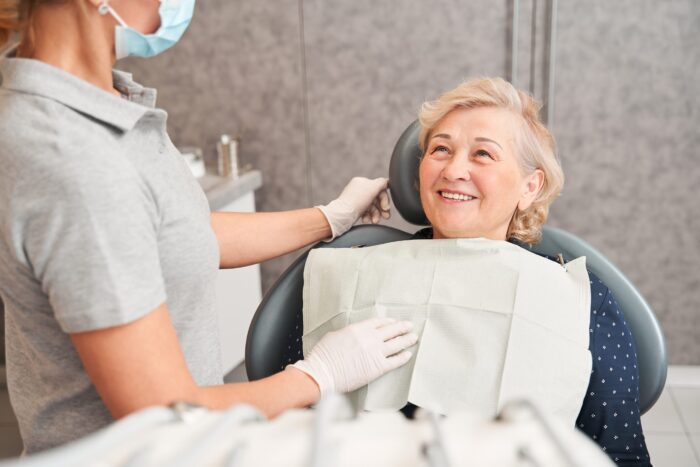Do you have dental injuries? Have you lost one or more missing teeth? Renew your smile with restorative dentistry in Arlington Heights, IL. Restorative dental care helps improve the full functionality of the smile. Patients with severe tooth damage and wear benefit from restorative dentistry. Implant dentistry is also an important part of the restorative care that we offer to our patients. Here you can discover more about your restorative options.

Restorative Dentistry FAQs in Arlington Heights, IL
Read answers to questions that many patients have about restorative dental care:
Do I need implants to restore all of my missing teeth?
You will not need implants for each missing tooth if you have full rows or arches of lost teeth. Patients with one or two full arches of missing teeth benefit from implant-secured dentures. We may use a fixed hybrid denture that can secure a tooth arch with four to eight dental implants. These dentures support bone and gum health without needing to replace every single tooth with an implant.
How can Botox treat TMJ disorders?
Botox is a treatment many people use to eliminate wrinkles from different areas of the face, including the forehead, smile lines, and crow’s feet. But did you know that Botox can treat TMD? Patients with temporomandibular joint disorders can experience facial pain and discomfort from pressure on the teeth and jaw. Botox releases muscle tension so that patients can relieve TMD symptoms. We inject Botox in key areas of the face to help patients with TMD.
Do I need a dental crown for injured teeth?
We recommend dental crowns for patients who want to protect a highly damaged or injured tooth. While dental bonding and porcelain veneers can repair small chips or cracks that affect the tooth’s appearance, crowns can address severe oral health problems. Additionally, we will recommend crowns for patients with worn teeth. Dental crowns fully cover teeth and can create a more balanced, even bite for patients with tooth wear.
How do I know if I clench and grind my teeth?
Bruxism, or teeth clenching and grinding, is a common TMD symptom. Some patients may not realize they have TMD because they experience bruxism during sleep. However, you may have bruxism if you wake up with headaches and tooth pain. We will look for signs of tooth wear and other TMD symptoms at regular appointments.
Do I need a dental bridge or implant?
Traditional dental bridges require support from adjacent teeth to keep a prosthetic in place. Bridges can support one or more missing teeth. However, we recommend single dental implants as an alternative. Implants can replace a missing tooth and last much longer than a traditional dental bridge.
Do you have any more questions about restorative dental care? Schedule a dental appointment with Dr. Brent Engelberg online or call AH Smiles at (847) 230-9703.
